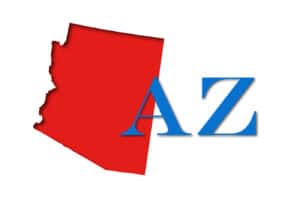News
Multifamily Energy Audit Guide
The purpose of this document is to establish best practices and guidance for conducting the energy analysis required for multifamily (MF) building energy improvement projects funded by the various programs of the Maryland Department of Housing and Community Development (DHCD). The intended audience includes energy auditors, building owners and operators, contractors, designers, architects, engineers, and […]
A Guide to Energy Audits
Energy audits are a powerful tool for uncovering operational and equipment improvements that will save energy, reduce energy costs, and lead to higher performance. Energy audits can be done as a stand-alone effort but may be conducted as part of a larger analysis across a group of facilities, or across an owner’s entire portfolio. This […]
Report on Investor Consents for Energy and Water Efficiency Improvements
The benefits of energy and water conservation in the affordable multifamily industry have been documented thoroughly over the past several years. From the reduction in utility costs to the federal government; to the preservation of affordable housing by decreasing operating costs and thus keeping rents affordable and properties viable; and to the improvements to resident health […]

NH&RA’s 2014 Vision Awardees Demonstrate Affordable Housing’s Larger Purpose
Providing housing and its resultant community benefits not just as an occupation, but as the means to sustaining the American dream, was the theme that ran throughout the emotional October 6th ceremony in Boston honoring Andrea Daskalakis and David Abromowitz as winners of National Housing & Rehabilitation Association’s 2014 Affordable Housing Vision Awards for Career Achievement.

Four NH&RA Member Firms Selected for MFE Project of the Year Awards
Among the 28 project, program, and service 2014 MFE Projects of the Year award winners includes four NH&RA member firms.

State Housing News for the Week of October 20
Compilation of State Housing Finance Agency from across the nation for the week of October 20.

HUD Releases 2015 OCAFs
HUD recently published the 2015 Operating Cost Adjustment Factors (OCAF) for project based assistance contracts for eligible multifamily housing projects having an anniversary date on or after February 11, 2015.

HUD Releases Smoke Free Action Guide
HUD recently released a memo outlining specific steps for Owners/Agents who choose to implement a smoke-free policy within their portfolio as well as a Smoke Free Action Guide created by the Office of Healthy Homes.

District of Columbia Enacts New LIHTC Program
The District of Columbia’s fiscal year (FY) 2015 Budget Support Emergency Act, which became effective on October 1, 2014, implements a low-income housing tax credit (LIHTC) for the District of Columbia.

Former Schmidt’s Brewery and Reynolds Wrap Factory Win Prestigious Historic Rehabilitation Awards
A distressed YWCA in Cambridge, Massachusetts rehabilitated to 103 SRO units for formerly homeless and disabled women; a former Reynolds Wrap aluminum foil factory converted into 174 luxury apartments on Richmond, Virginia’s Canal District; and the adaptive reuse of the historic Schmidt Brewery into artist lofts in St. Paul, Minnesota are among the nine winning projects for the 10th Annual J. Timothy Anderson Awards for Excellence in Historic Rehabilitation (Timmy Awards).
New York City Local Law 84 Benchmarking Report
New York City has released its third annual Local Law 84 Benchmarking Report. The new report analyzes a trove of building energy use data from 2012, collected from more than 23,000 buildings representing more than 2.1 billion square feet of space. It shows an increasing number of building owners are consistently reporting their energy and […]

Affordable Housing Conference Tackles the New and the Difficult
The 2014 Fall Forum, the 21st event held each autumn in Boston, bristled with energetic discussion of the methods to help your investor out of an LIHTC deal after 15 years, the confusing interplay between federal and state tax credits in light of the lack of consistency among the state programs, and the 25-year successful struggle to recapitalize Massachusetts SHARP Program debt following the 1990 market crash that stagnated rents and negated projections.